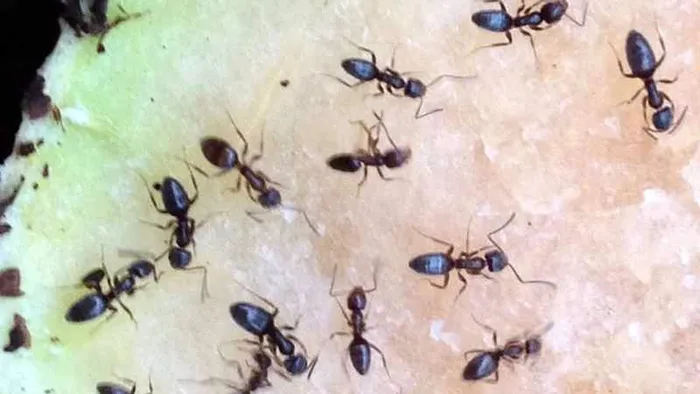Ant smuggling bust in Kenya uncovers million-dollar global insect trade
smuggling

Its not just big animals that are smuggled, tiny insects like ants are also targeted.
Image: File pic
WILDLIFE trafficking is no longer just a threat to Africa’s elephants and rhinos, now even its smallest inhabitants are being targeted for profit. In a case that has shocked conservationists, Kenyan authorities recently intercepted an attempt to smuggle 5,400 live queen ants out of the country, spotlighting a growing black market for insects.
In April, two Belgian teenagers, a Vietnamese national, and a Kenyan accomplice were caught trying to sneak the ants, primarily of the Messor cephalotes species, out of Kenya. The insects were carefully packed into over 2,200 modified test tubes and syringes to keep them alive for transport to European collectors.
The Kenya Wildlife Service (KWS) valued the collection at approximately 1.2 million Kenyan shillings. On the European underground market, the ants could have sold for up to one million US dollars, underscoring the lucrative nature of this little-known trade.
While high-profile smuggling cases involving ivory or rhino horn often dominate headlines, this incident reveals how traffickers are shifting focus to smaller, less conspicuous species that still fetch high prices among global hobbyists.
“The smuggling of ants, it is not a good thing. The smuggling of any animal to places where they don’t occur naturally is quite troublesome,” said Professor Henk Bouwman of the Unit for Environmental Sciences and Management at North-West University.
“Ants are a fantastic group of animals to study and to look at. There are 12,000 to 15,000 known species, and we estimate that there might be more than double that. They're really, really incredible,” he said. “They occur in almost any habitat, from deep underground to right at the top of trees in rainforest.”
Bouwman warned that moving ants into new ecosystems where native species have no natural defences can lead to severe ecological disruption. “When they end up in places where there's no resistance from plants or animals to these ants, which is not their fault, of course, then it can have tremendous consequences for the ecology and even economy of that region. And it is really, really bad to have people doing this kind of thing,” he added.
The interception highlights a critical blind spot in conservation: while much attention is given to Africa’s iconic megafauna, smaller species, many of which play vital roles in their ecosystems, are increasingly vulnerable to exploitation.
As trafficking tactics evolve, conservationists argue that strategies must also adapt to protect not just the continent’s giants, but the minute and often overlooked creatures essential to ecological balance.